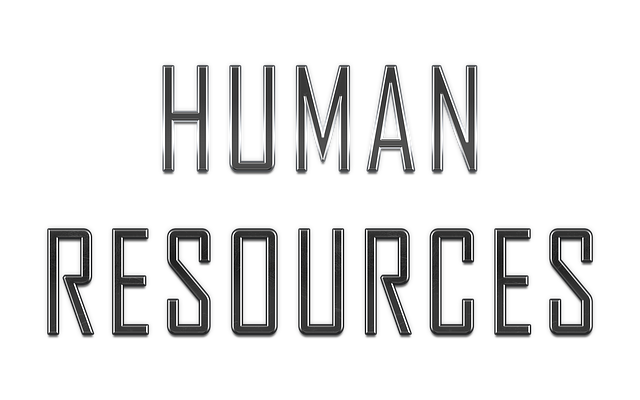The Department of Human Services (DHS) in Oregon follows stringent legal procedures for child welfare cases, emphasizing fairness and protecting all parties' rights. This process includes intake investigations, formal inquiries with interviews and evidence collection, and collaboration with courts and agencies while adhering to due process, confidentiality, and timeliness. DHS employs a multi-faceted approach for case assessments, utilizing risk analyses, parent interviews, and record reviews. Parents have defined rights, including being informed, consulting attorneys, and participating in hearings. Alternative Dispute Resolution (ADR) methods like mediation are used to resolve disputes. Structured Case Plan Development and Monitoring ensure tailored plans for children's safety and well-being. Family Preservation and Support Services aim to keep families together through intensive interventions. DHS legal procedures prioritize the best interests of children while respecting family rights.
“In Oregon, the Department of Human Services (DHS) plays a pivotal role in child welfare, implementing strategic case management to ensure the safety and well-being of children. This article delves into the intricate aspects of DHS legal procedures in Oregon, exploring a comprehensive guide to their child welfare case strategies. From understanding assessment methods to defining parental rights and responsibilities, it covers alternative dispute resolution options and the development of effective case plans. Additionally, it highlights family preservation services, offering a holistic view of Oregon’s approach to child welfare.”
- Understanding DHS Legal Procedures in Oregon
- Oregon's Child Welfare Case Assessment Strategies
- Legal Rights and Responsibilities for Parents
- Alternative Dispute Resolution Options
- Case Plan Development and Monitoring
- Family Preservation and Support Services
Understanding DHS Legal Procedures in Oregon

In Oregon, the Department of Human Services (DHS) follows specific legal procedures when handling child welfare cases. These procedures are designed to ensure fairness and protect the rights of all involved parties, including children and their families. The process begins with an intake investigation where DHS caseworkers gather information and assess the situation. If there is a reasonable cause to believe that a child is at risk, the department initiates a formal investigation, conducting interviews, reviewing records, and gathering evidence to support or refute the allegations.
Throughout these legal procedures, DHS must adhere to state and federal laws, including those related to due process, confidentiality, and timeliness. They work closely with courts, lawyers, and other agencies to navigate the complex system. This comprehensive approach ensures that child welfare cases in Oregon are handled with professionalism and sensitivity, prioritizing the best interests of the child while respecting the rights of their family.
Oregon's Child Welfare Case Assessment Strategies

Oregon’s Child Welfare case assessment strategies are designed to ensure a thorough and fair evaluation of every situation, aligning with DHS legal procedures. These strategies involve a multi-faceted approach that considers both the child’s safety and well-being, as well as the family’s circumstances. Social workers are trained to conduct comprehensive assessments, gathering all relevant information from various sources to make informed decisions.
The process involves risk assessments, interviews with parents or guardians, observations of family dynamics, and reviews of historical records. By employing these strategies, Oregon DHS aims to deliver effective interventions tailored to each unique case, ultimately striving for the best interests of the child while supporting families in need.
Legal Rights and Responsibilities for Parents

In Oregon, the Department of Human Services (DHS) is responsible for ensuring the safety and well-being of children through its child welfare services. Parents involved in such cases have specific legal rights and responsibilities. Understanding these rights is crucial to navigating the DHS legal procedures in Oregon.
Parents are entitled to be informed about the case, including the reasons for the child’s removal or involvement with DHS. They have the right to consult with an attorney, participate in all hearings, and receive a fair and impartial process. Moreover, parents can expect confidentiality regarding their personal information and the details of the case. It is also important to know that DHS must prove by clear and convincing evidence that the child is at risk and that placement outside the home is necessary for the child’s safety and well-being.
Alternative Dispute Resolution Options

In Oregon, the Department of Human Services (DHS) offers a range of Alternative Dispute Resolution (ADR) options as part of its child welfare case strategies. These processes provide an alternative to traditional legal procedures, allowing for more flexible and cooperative resolutions between families, foster care providers, and DHS. ADR methods such as mediation and family-focused conferences aim to facilitate open communication and collaborative problem-solving.
Through mediation, parties involved in a child welfare dispute can work together with a neutral third party to reach mutually agreeable solutions without going through formal court proceedings. This approach respects the autonomy of families while ensuring the best interests of the child are maintained. By embracing these DHS legal procedures, Oregon aims to create a more efficient and family-centered approach to child welfare cases.
Case Plan Development and Monitoring

In Oregon, the Department of Human Services (DHS) follows structured legal procedures for child welfare cases, emphasizing a comprehensive approach to Case Plan Development and Monitoring. This process involves close collaboration between caseworkers, families, and other involved agencies to create tailored plans aimed at ensuring the safety, well-being, and stability of children. The plan’s development is guided by federal and state regulations, focusing on specific goals and milestones that must be regularly reviewed and updated.
Case Plan Monitoring plays a critical role in ensuring these plans remain effective and relevant. DHS caseworkers conduct periodic reviews, meticulously tracking progress towards established goals. This monitoring not only helps identify areas requiring adjustments but also fosters accountability within the system. By adhering to these stringent legal procedures, Oregon DHS strives to deliver efficient, family-centered services that ultimately lead to positive outcomes for children involved in child welfare cases.
Family Preservation and Support Services

In Oregon, the Department of Human Services (DHS) offers Family Preservation and Support Services as part of its child welfare case strategies. These services are designed to keep families together by providing intensive in-home interventions and support to prevent the removal of children from their homes. By focusing on strengthening family connections and promoting healthy parenting practices, DHS aims to address the underlying issues that may have led to the involvement of the child welfare system.
This approach aligns with DHS legal procedures, which prioritize family preservation as a primary goal whenever possible. The services include case management, parent education, counseling, and access to resources such as financial assistance and housing support. By offering these comprehensive interventions, Oregon DHS seeks to not only protect children’s well-being but also empower families to make positive changes that will benefit them in the long term.
